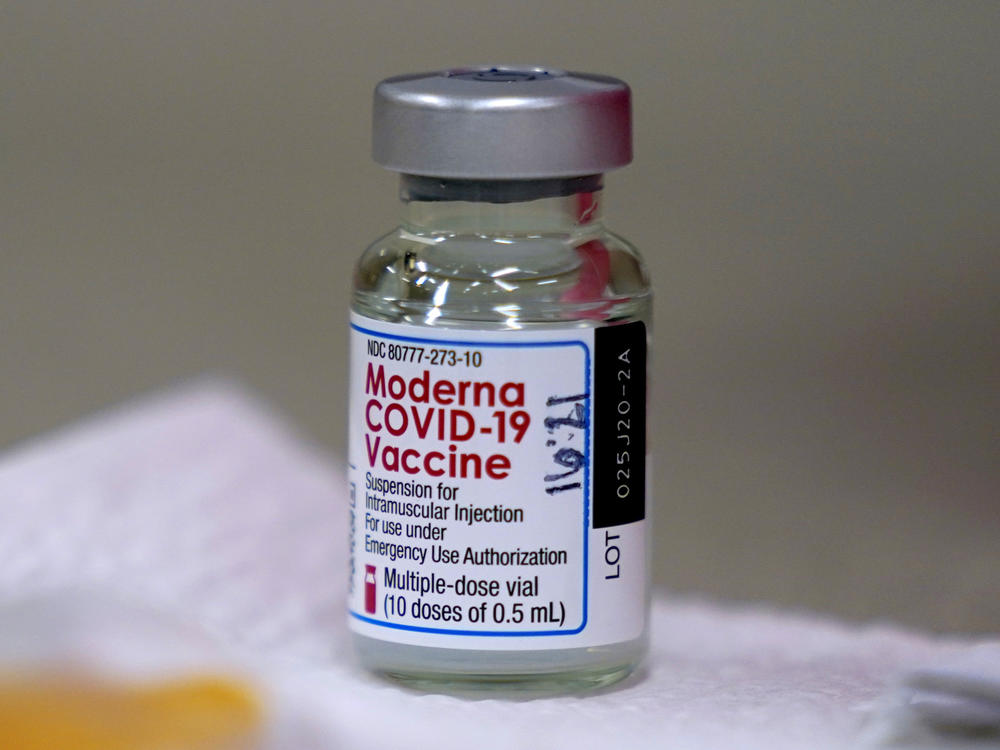Section Branding
Header Content
EU Authorizes Moderna COVID-19 Vaccine, Saying It Has 160 Million Doses
Primary Content
Updated at 1:40 p.m. ET
The European Union is preparing to distribute the Moderna COVID-19 vaccine to all its member countries, after the European Commission granted conditional authorization of the vaccine.
The EU acted hours after the European Medicines Agency endorsed the vaccine, in a move that will add another 160 million doses to its large-scale vaccination effort. Europeans have been receiving shots of the Pfizer-BioNTech vaccine since it was approved last month. And officials note that more vaccines are in the pipeline.
"Europe has secured up to two billion doses of potential COVID-19 vaccines," EU Commission President Ursula von der Leyen said. "We'll have more than enough safe and effective vaccines for protecting all Europeans."
The EU's human medicines committee recommended authorizing the Moderna vaccine during a meeting Wednesday, saying it is safe and effective for people 18 and older. As was the case with the Pfizer vaccine, the EU Commission took action almost immediately after the regulator's green light.
With 460 million combined doses of the Moderna and Pfizer-BioNTech vaccines now being rolled out in the EU, Stella Kyriakides, the union's commissioner for health and food safety, said member nations must "ensure that the pace of vaccinations follows suit."
"This vaccine provides us with another tool to overcome the current emergency," said Emer Cooke, executive director of the European Medicines Agency, hailing the arrival of another vaccine less than a year after the pandemic was declared.
Like the Pfizer vaccine, the Moderna vaccine requires two doses to be effective. Both medicines work by using messenger RNA to induce the body to produce antibodies to help fight off an infection by the coronavirus. They essentially trick the body into making the same spike protein that the virus uses to invade cells — but without the dangerous coronavirus being present.
As the EU panel explains, regarding the vaccination process:
"When a person is given the vaccine, some of their cells will read the mRNA instructions and temporarily produce the spike protein. The person's immune system will then recognize this protein as foreign and produce antibodies and activate T cells (white blood cells) to attack it.
"If, later on, the person comes into contact with SARS-CoV-2 virus, their immune system will recognize it and be ready to defend the body against it."
The Centers for Disease Control and Prevention says, "The benefit of mRNA vaccines, like all vaccines, is those vaccinated gain this protection without ever having to risk the serious consequences of getting sick with COVID-19."
Copyright 2021 NPR. To see more, visit https://www.npr.org.

